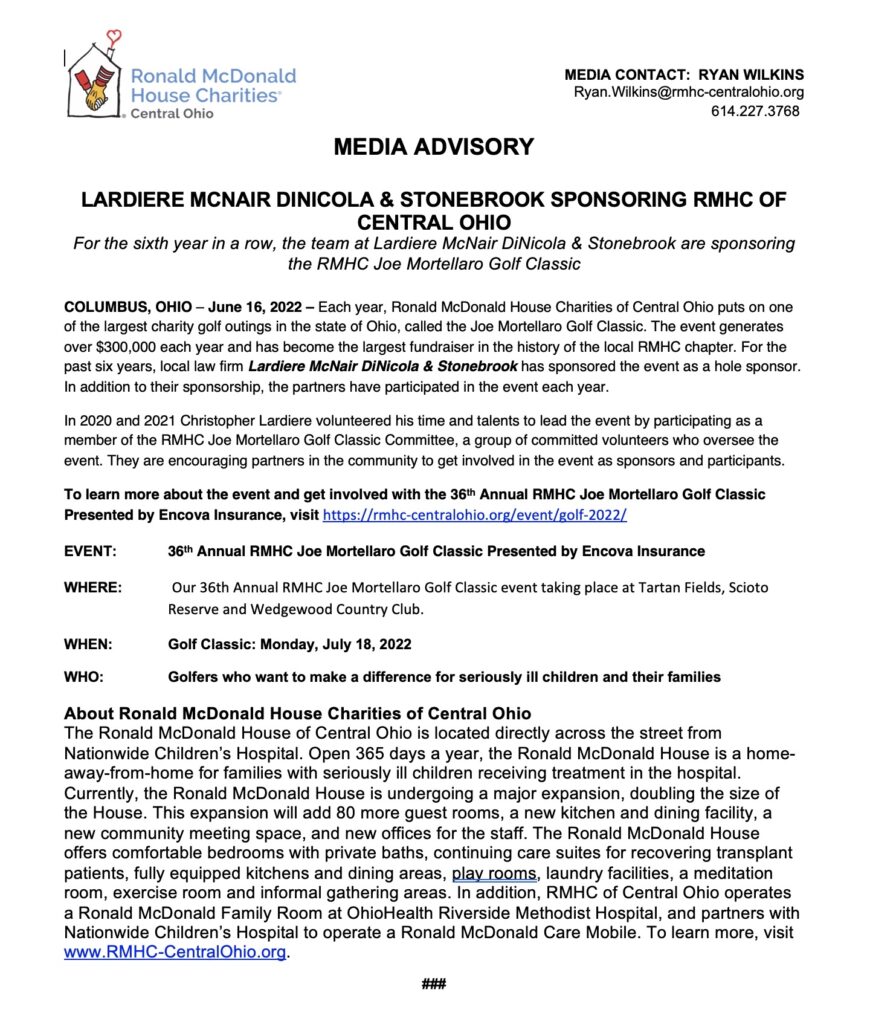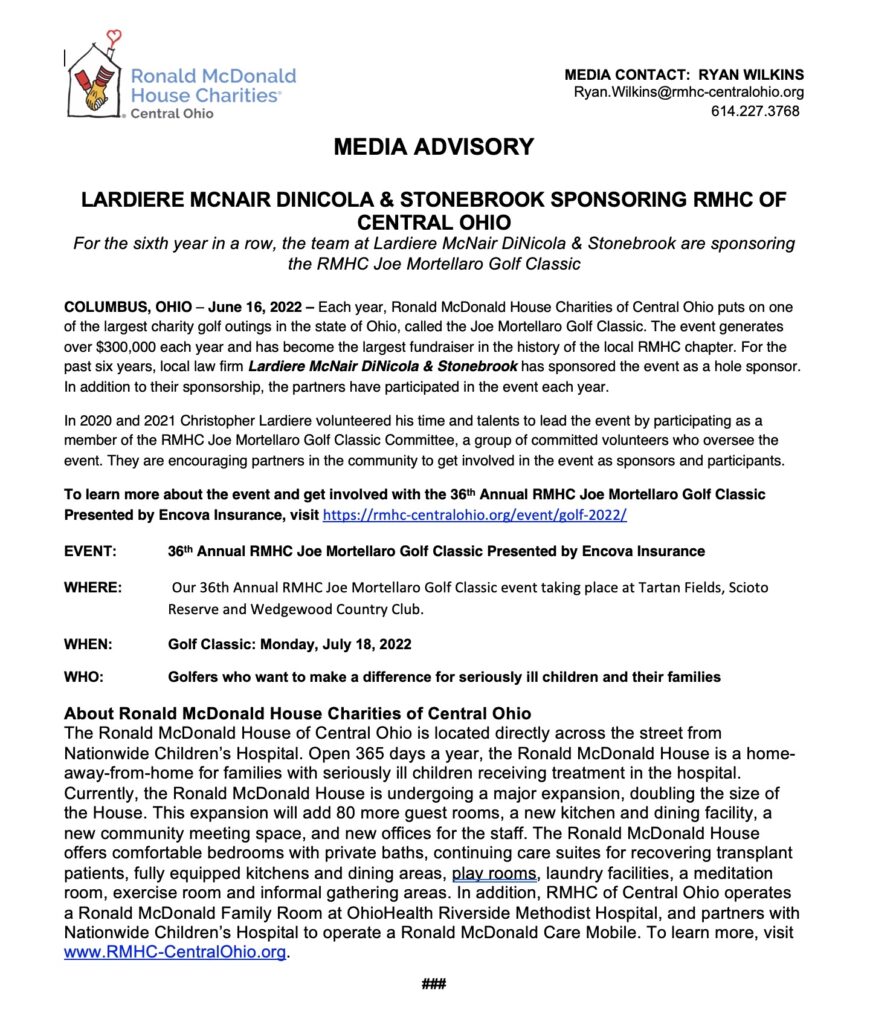What to Do When You’ve Been Injured.
You have just been injured in an automobile accident, on a friend’s property, at a restaurant, or in your neighborhood by a dog or other pet. What’s next? Call the police? Exchange insurance information? Go to the hospital? The options can be overwhelming especially while being in pain.
Almost all of Lardiere McNair DiNicola & Stonebrook, Ltd.’s personal injury clients have no experience in bringing a personal injury claim and never thought they would need to during their lives. We are here to walk through the foreign process of a personal injury claim for those who don’t know even the first step to being compensated for their injuries and pain.
1. Emergency Medical Treatment
First and foremost, if you believe your injuries may require emergency medical care, go to your nearest emergency department for care before doing anything else. Any subsequent medical care we leave to the expertise of medical providers to advise on. As your personal injury attorney, our only advice regarding medical treatment will be to receive the care that your medical care team advises you to receive.
2. Insurance
Next, receiving the contact information of any other party that may be responsible for your injuries will be crucial. At an automobile accident scene, get the other driver’s insurance information. At a neighborhood cookout or after a dog bite in the neighborhood, request the homeowner’s insurance of the host or dog owner. At a restaurant or store, ask the manager of the business for its liability insurance information. Our attorneys at Lardiere McNair DiNicola & Stonebrook, Ltd., LPA are willing and able to do the “heavy lifting” to collect this information if it is not obtained by you prior to calling our office.
3. Strengthening Your Claim
Finally, any evidence you have collected to support your personal injury claim will be helpful in our representation of you. Things like photographs of your injuries, the scene where the injury took place, expenses you have incurred as a result of the injury, and any police report that you are aware of being made. As always, as your personal injury counsel, we will work hard to collect all evidence available to prove the liability of the at-fault party and your financial, physical, and emotional damages.
In our representation of you in a personal injury claim, with your permission and authorization, we will take care of all communication and negotiation with the insurance company from beginning to end so that you can focus on treating your injuries and returning to “normal life”. We want our clients to be as involved or removed from the claim process as they would like to be depending on their interests and stress levels. We know that our personal injury clients do not ask for these injuries to happen to them, so here at LMDS we strive to take as much stress off our clients as possible while still getting them justly compensated for their pain, suffering, and financial losses.
If you or a loved one believe to have a potential personal injury claim where they have not been fairly compensated or don’t know where to begin, reach out to Lardiere McNair DiNicola & Stonebrook, Ltd., LPA for a free consultation at (614) 534-1355. Time is often of the essence in personal injury claims, so please act promptly if you wish to pursue a personal injury claim.
Taylor Agler is an Associate Attorney at Lardiere McNair DiNicola & Stonebrook, Ltd., LPA. To read more about our firm, please visit lawyerscolumbusohio.com.
The information presented here has been prepared by Lardiere McNair for promotional and informational purposes only and should not be considered legal advice. This information is not intended to provide, and receipt of it does not constitute, legal advice. Nor does the receipt of this material create an attorney/client relationship. An attorney client relationship is not established until such time as Lardiere McNair enters in to a written engagement agreement with a specific client for a specific legal matter.



 Sunni DiNicola is a Partner at Lardiere McNair DiNicola & Stonebrook, Ltd., LPA. To read more about our firm, please visit
Sunni DiNicola is a Partner at Lardiere McNair DiNicola & Stonebrook, Ltd., LPA. To read more about our firm, please visit 